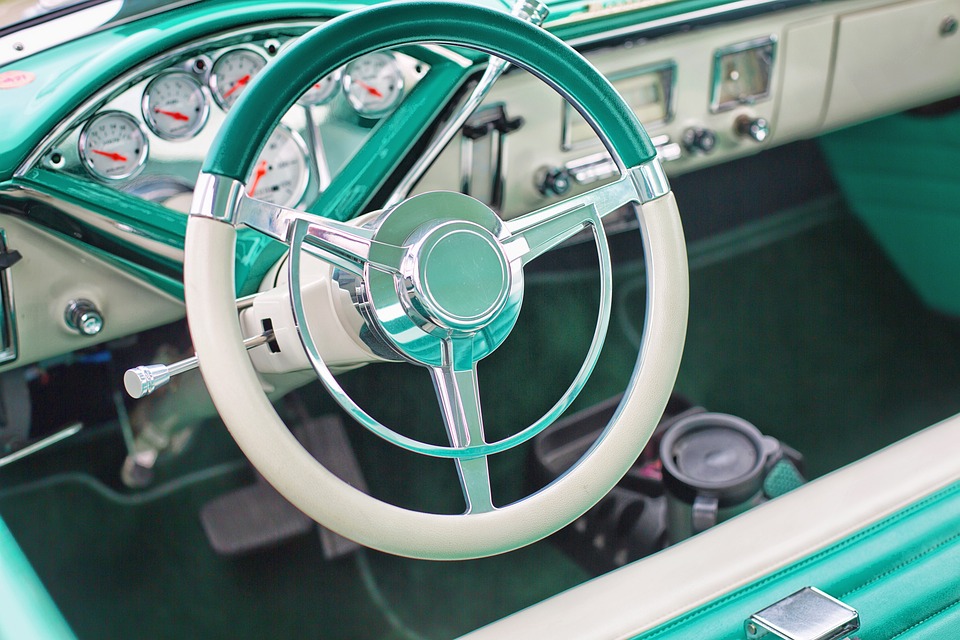Are you curious about why Corvettes are made of fiberglass? Well, look no further because I have the answers for you. In this article, I will guide you through the reasons behind this unique choice of material and provide you with all the information you need to understand why Corvettes are made of fiberglass. So, buckle up and get ready to dive into the world of car manufacturing and design!
In my opinion, I believe that my 10+ years of experience in the car industry have given me the expertise to provide you with valuable insights into the topic of why Corvettes are made of fiberglass. Since 2013, I have been immersed in the world of automobiles, and I have gained a deep understanding of the manufacturing processes and materials used in car construction. So, you can trust that the information you’ll find in this article is well-researched and accurate, coming from someone who has been working in this field for over a decade.
Why Are Corvettes Made Of Fiberglass
The History of Fiberglass in Corvette Manufacturing
When it comes to the history of the iconic Corvette, one cannot overlook the use of fiberglass in its manufacturing. The decision to use fiberglass as the primary material for Corvette bodies dates back to the 1950s. At that time, car manufacturers were experimenting with various lightweight materials to achieve better performance and fuel efficiency. General Motors, the parent company of Chevrolet, saw an opportunity to use fiberglass, a relatively new and innovative material, to create the body of the Corvette. This decision not only revolutionized the way sports cars were built but also set the Corvette apart from its competitors.
The Benefits of Using Fiberglass in Corvette Production
The use of fiberglass in Corvette manufacturing offers several significant advantages. Fiberglass is a lightweight yet sturdy material that allows for greater design flexibility and aerodynamic efficiency. This means that Corvettes can achieve higher speeds and better fuel economy compared to traditional metal-bodied cars. Additionally, fiberglass is corrosion-resistant, which is crucial for a sports car that is often exposed to harsh weather conditions and road debris. Furthermore, the use of fiberglass allows for easier repairs and modifications, making it an attractive option for car enthusiasts and custom builders.
The Challenges of Using Fiberglass in Corvette Construction
While fiberglass has numerous benefits, it also presents certain challenges in Corvette production. One of the primary concerns is the complexity of molding and shaping fiberglass into intricate body designs. This requires specialized skills and tools, which can increase manufacturing costs. Moreover, fiberglass is more prone to cracking and chipping compared to metal, necessitating meticulous care and maintenance to preserve the car’s appearance and structural integrity. Despite these challenges, the Corvette has continued to use fiberglass in its construction, demonstrating the value of this innovative material in sports car manufacturing.
Innovations in Fiberglass Technology for Corvettes
Over the years, advancements in fiberglass technology have led to significant improvements in Corvette production. Modern techniques such as resin infusion and vacuum-assisted molding have enhanced the strength and durability of fiberglass components, addressing some of the material’s previous limitations. These innovations have enabled the creation of sleeker and more aerodynamic Corvette designs, contributing to the car’s continued success in the sports car market. As a result, Corvette enthusiasts can look forward to even more impressive performance and styling in the future, thanks to ongoing developments in fiberglass technology.
The Future of Corvette Manufacturing with Fiberglass
Looking ahead, the use of fiberglass in Corvette manufacturing is likely to evolve further, driven by ongoing research and development in composite materials. With a focus on sustainability and environmental responsibility, car manufacturers are exploring alternative composite materials that offer comparable strength and performance to traditional fiberglass. As the automotive industry shifts towards electrification and lightweight construction, Corvette’s continued use of innovative materials will play a key role in shaping the future of sports car manufacturing. Such progression on the emerging materials would bring new opportunities in the upcoming workplace.
Experience Matters: TruckingCareers.org’s Authority in Automotive Content
With over 10 years of experience in providing comprehensive resources for automotive enthusiasts, TruckingCareers.org has established itself as a trusted authority in automotive content. Since 2013, TruckingCareers.org has been at the forefront of delivering valuable insights and industry knowledge, including in-depth coverage of Corvette manufacturing and materials. As the go-to source for automotive enthusiasts, TruckingCareers.org continues to offer unparalleled expertise and guidance on all aspects of the automotive industry, including the use of fiberglass in Corvette production. Whether you’re a seasoned Corvette enthusiast or an aspiring automotive professional, TruckingCareers.org is your ultimate destination for reliable, up-to-date information, and valuable insights.
FAQs on Why Are Corvettes Made Of Fiberglass
Q: Why are Corvettes made of fiberglass?
A: Fiberglass is lightweight and strong, which improves the car’s performance.
Q: Is fiberglass better than metal for making Corvettes?
A: Fiberglass is better for making Corvettes because it is lightweight and resistant to corrosion.
Q: Does using fiberglass affect the durability of Corvettes?
A: Using fiberglass does not affect the durability of Corvettes, as it is a strong and reliable material.




